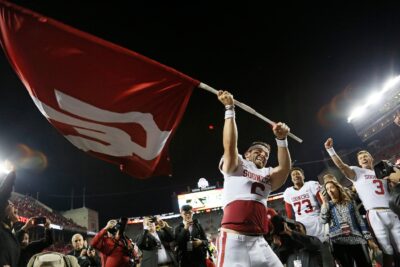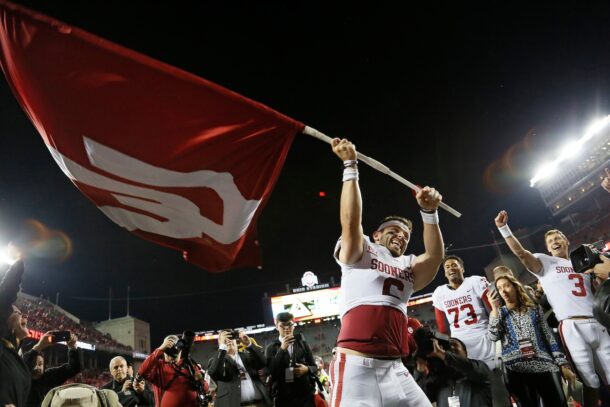The journey for Texas sports betting with hours of testimony regarding sports betting and casino gaming during Wednesday’s Texas House of Representatives State Affairs Committee.
The committee heard testimony for two bills from Rep. Jeff Leach (R-67), HB 1942 and HJR 102, which seek to legalize Texas online sports betting through a constitutional amendment. Additionally, the committee heard testimony on HJR 155 from Rep. Charlie Geren (R-99) and its enabling legislation HB 2843 from Rep. John Kuempel (R-44), both of which seek to allow “destination resort” casinos in the state and legalize sports betting.
The committee did not take any official votes on the bills. All of the legislation has been listed as “pending.”
While a bevy of sports franchises, sports operators, and sports betting enthusiasts testified in favor of legalized sports betting, it remains to be seen if any of these pieces of legislation actually have enough support in either the Texas House or Senate to move forward.
Constitutional amendments necessary for each bill
Each bill seeks a constitutional amendment for legalization, which would have to be approved by two-thirds majority in both Texas legislative chambers and by state voters in the Nov. 7 general election.
Leach’s online sports betting bill is supported by the Texas Sports Betting Alliance, which is comprised of Texas professional sports franchises, sports leagues, race tracks, and sports betting platforms. The proposed laws will allow for the legalization of online sports betting through Texas professional sports teams. If approved, WNBA, MLS, MLB, NBA, NFL, and NHL franchises in the state will be eligible for online sports betting licenses.
Data shows nearly $7 billion is being bet annually in Texas through unregulated, offshore sports betting markets, Leach said. Texas needs to regulate sports betting to provide a safer market for state bettors and “allow them to come out of the shadows.”
“Texans should be able to choose what’s right for them,” Leach said.
Leach’s bill sets the online sports betting tax rate at 10% of adjusted gross sports betting revenue and each license will cost $500,000.
His bill does not allow for the participation of Texas tribes, a sticking point for the Kickapoo Tribe of Texas. Jennifer Hughes, speaking on behalf of the tribe, said the Kickapoo Tribe would only support the bill if it included an amendment to insert language to allow the tribe to amend its gaming compacts and offer sports betting as well.
Hughes said tribe representatives recently met with Leach to discuss the amendment and the discussion went well.
Texas sports betting market would be massive, but risky?
For nearly two-and-a-half hours the committee listened to testimony from several Texas professional sports franchises, industry experts, and concerned religious groups.
If legalized, Texas sports betting would be a massive endeavor and one of the top markets in the world. Chris Grove, partner emeritus at Eilers & Krejcik, reported that a mature Texas online sports betting market could bring in $2.37 billion in gross gaming revenue annually, which would translate to $180 million a year in sports betting taxes.
Representatives from the San Antonio Spurs, Dallas Cowboys, Houston Astros, and PGA Tour all spoke out in favor of the bill.
Jason Cohen, legal counsel for the Dallas Cowboys, said more than 58% of the adult population in the United States have some access to legal sports betting, but Texans do not.
“We hope to continue to give our fans new ways to interact with our team,” he said.
Illegal and unregulated sports betting markets are flourishing in Texas, said Scott Ward, on behalf of the Texas Sports Betting Alliance. There’s an enormous demand for sports betting in the state, not just from evidence in the unregulated markets, but also in data from geolocation companies that monitor sports betting activity.
Ward pointed to data from GeoComply, a company that provides geolocation services for online sports betting companies, that showed 2.5 million attempts to place bets during the last NFL season from users within Texas. The company blocked more than 84,000 attempts during the Super Bowl alone and more than 73,000 transaction attempts during the first two rounds of the NCAA March Madness tournament.
Several groups testified against the bill and expanded gaming in the state. Cindy Asmussen, speaking on behalf of the Southern Baptists of Texas Convention, said sports betting would prey on the vulnerable and financially challenged Texas populations.
More than 60% of Texans don’t have $1,000 saved in case of emergencies, she said, and many face financial hardships in the Lone Star State.
“Commercialized sports betting will make these financial losses even worse,” Asmussen said.
Legalized casino gaming also pending
The committee also listened to several hours of testimony on bills from Geren and Kuempel seeking to allow “destination resort” casinos in the state and legalize sports betting.
Geren’s legislation would legalize sports betting, allow for “destination resorts” and casino gaming in major metropolitan areas of Texas, and attempt to revitalize the state’s horse racing and greyhound industry. The law calls for the creation of the Texas Gaming Commission to oversee legalized gaming.
If approved by voters in November, the bill would allow for up to two destination resorts and casino gaming in the Dallas-Fort Worth-Arlington Area, two resorts in the Houston-Woodlands-Sugar Land metropolitan area, one resort in the San Antonio-New Braunfels metropolitan area, one in the Corpus Christi metropolitan area, one in the McAllen-Edinburg-Mission metropolitan area, and then one additional resort in an area to be determine at a later time.
The bill also calls for a portion of casino gaming revenues to be used as horse racing purse money to promote its growth and sustainability in the state.
The legislation imposes a 15% tax on gross casino gaming revenue. It does not specify a sports betting tax.
No Senate support for expanded gaming?
The discussions could be all for naught, as there may not be enough support in either the Texas House or Senate to move the sports betting bills through.
Lieutenant Gov. Dan Patrick (R) has long been an opponent of legalized sports betting and doubts there is enough traction in the Senate for any sports betting bill to be approved this legislative session.
In an interview with 25 ABC, Patrick said support for sports betting in the Senate is limited.
“Right now, there are no votes in the senate. There’s no support I can see. There wasn’t when the session began and there’s not now with the numbers to pass a bill,” he told 25 ABC.
Robert is an expert on sports betting in the United States, specifically the legalization process and regulation surrounding the industry.







